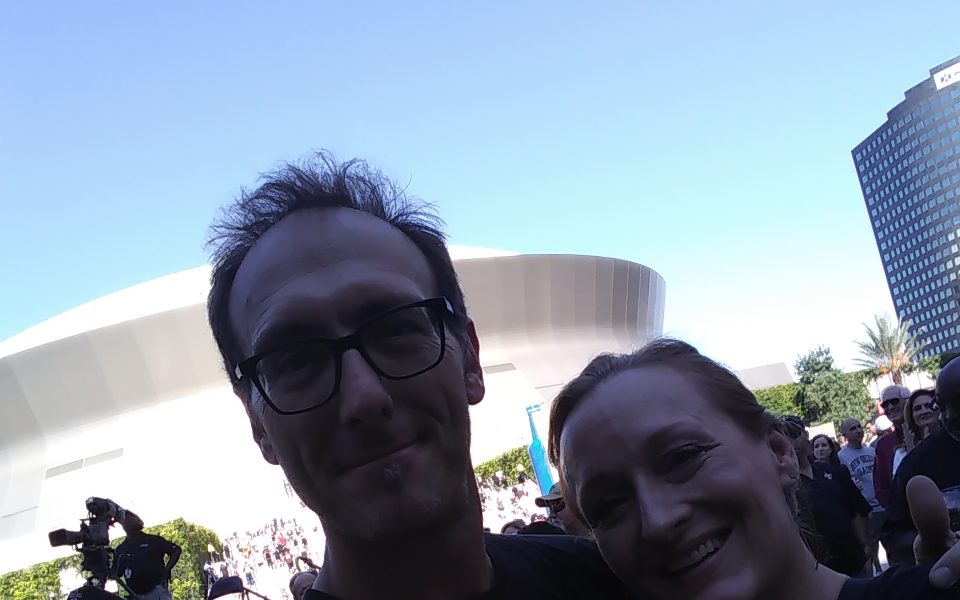Something happens to me when I approach New Orleans and see Lake Pontchartrain in all its vast, swampy grandeur, whether I’m driving over the causeway, as long as a marathon, or flying above it as I come in for a landing at the airport now named for Louis Armstrong.
I feel lighter. Happier. Like my old self. It’s hard to explain.
For me, there is no such thing as a simple trip to New Orleans. Every corner of the city triggers sense memory to the point that I can’t even go into a random bathroom in a French Quarter bar without having a flashback.
I can’t enter the Superdome without visions of my first Saints game there — 1989 — superimposed on everything I see. I can’t walk the streets of the Marigny without peeling back the layers of my time on these streets. I can’t look at the Mississippi River without feeling it flowing through me, too.
When I walk down Burgundy Street I still feel like I’m in my twenties, slightly put off that no one in the neighborhood seems to know who I am anymore. And when I pop my head into all the old places, I can’t help but look for faces I know, even though most of them are long gone from this place.
Sure, the city has changed a lot in the 18 years since I’ve been gone. Katrina passed through, bringing hordes of new people and construction. But there are 200-year-old restaurants still doing what they’ve always done, and as always there is music flowing through the streets.
It’s me who has changed.
I’m older and smarter. I have made a family with the woman I met in a bar on St. Charles Avenue on beautiful spring morning. I have gotten a handle on demons that in New Orleans I allowed to drive my whole life.
The demons still live in New Orleans, only they don’t recognize me anymore.
On Sunday night, before we departed, my wife and I sat on the banks of the Mississippi where it turns toward Algiers, watching the cars pass over the twin-span bridge, listening to the tannic water lap against the rocky seawall.
The river changes every minute of every day. And yet here it is, exactly where I left it.
Join the First Amendment Society, a membership that goes directly to funding TCB‘s newsroom.
We believe that reporting can save the world.
The TCB First Amendment Society recognizes the vital role of a free, unfettered press with a bundling of local experiences designed to build community, and unique engagements with our newsroom that will help you understand, and shape, local journalism’s critical role in uplifting the people in our cities.
All revenue goes directly into the newsroom as reporters’ salaries and freelance commissions.


Leave a Reply